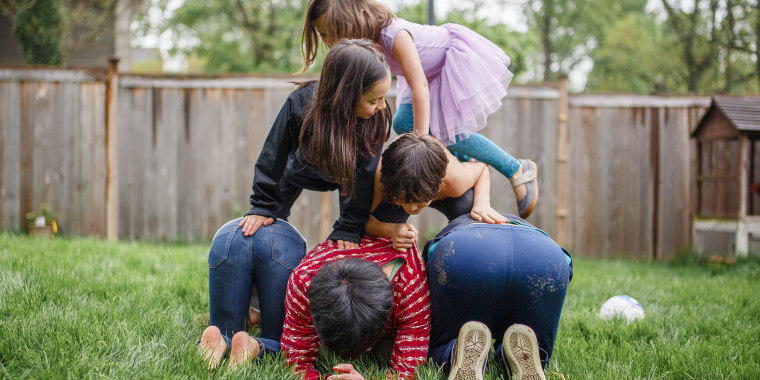The ability to trust oneself and others is at the root of every good relationship, and you can begin to establish your child’s sense of trust as early as infancy by being responsive to her physical and emotional needs. Studies have shown that when children are soothed, it strengthens their ability to cope with anxiety and regulate their emotions. As your child grows, you can enhance her ability to trust by creating a supportive environment, where you listen and follow through on the promises you make.
Show your child that you trust her. Trust in relationships goes both ways, and by recognizing and empathizing with your child, you are teaching her that no matter what she does, you will always be there for her. This translates into giving your child slightly more responsibility to see if she can handle it. Trust her to fold clothes, put dishes away, handle glassware, or help you cook. Don’t always expect success, and try not to react too strongly if she accidentally breaks a glass. Building skills is a learning process, but by extending the option, you are showing your child that you trust her. You may get frustrated with her, but always let her know that you have full confidence in her ability to make good choices in the future.
Respect your child’s need for privacy. Trust also means that you respect your child’s right to keep some matters private (except in cases where it is necessary to intervene). Sometimes your child may not want to talk about everything, and you need to accept that. Your child may not want to talk about school one day, or what she did at a play date. Unless you have a reason to believe that there is something that needs to be discussed, it is alright to let your child have a part of her life that is separate from you. It is necessary at this stage in development that a child feels a positive sense of separation from you as she forms her own self.
Playing with your child or reading to her also helps develop a bond of trust. Act out scenarios using her furry friends, like having mommy bear pick up baby bear from school or feeding baby bear when she’s hungry. These are good ways to teach your child about ways you show your trust in everyday situations. Answering any questions she may have while you are playing will give her the security that you have the knowledge needed to take care of her, giving her stronger trust in you. This is also a perfect time for your child to learn about the role that trust plays in appropriate relationships, and to remind to be careful around strangers and not immediately trust anyone that she doesn’t know.
Parent Toolkit resources were developed by NBC News Learn with the help of subject-matter experts, including Jennifer Miller, Author, Confident Parents, Confident Kids, and Michele Borba, Author and Educational Psychologist.
